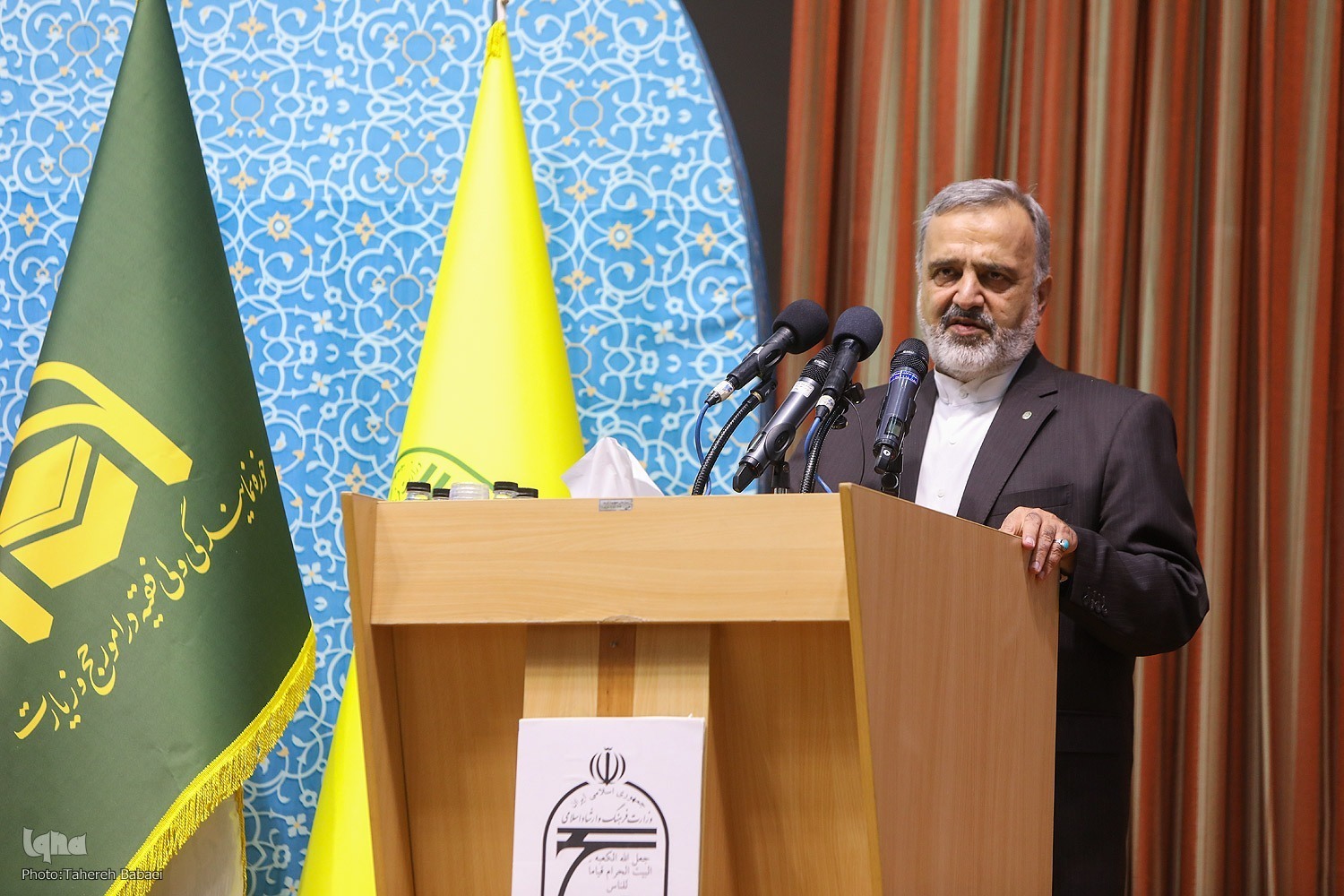Iran’s Hajj Organization Sees Leadership Change, Emphasizes Innovation, Service Quality

The event was attended by senior officials, including Minister of Culture and Islamic Guidance Seyed Abbas Salehi, and the Representative of the Leader of the Islamic Revolution in Hajj and Pilgrimage Affairs, Hojat-ol-Islam Abdol Fattah Navab.
The leadership change occurs as Iran seeks to navigate the complexities of modernizing the Hajj pilgrimage for its citizens and improving services for those visiting holy sites.
The ceremony began with a welcome address by Akbar Rezaei, the deputy for Hajj and Umrah of the organization. He framed public service as a sacred trust, stating, that “responsibilities are a trust in our hands, and we are all being tested. God gives us a few days to be trustworthy, and we must consider God above all.”
He thanked the outgoing head for his stewardship and pledged the organization’s full cooperation with the new appointee.
Hojat-ol-Islam Navab in his address emphasized the importance of a well-organized pilgrimage.
“The emphasis on holding the Hajj pilgrimage properly is an important issue,” he said.
He also highlighted that Iranian Hajj systems are seen as a model. “Saudi Hajj officials have repeatedly said that Iran’s Hajj systems are an example and a model, and this leadership must be maintained.”
He further called for efforts to boost pilgrimages to holy sites in Iraq and for upgrading employee skills to keep pace with a new, more educated generation.
The outgoing head of the organization, Alireza Bayat, then took the podium, acknowledging his short term of service. “My service period was short, but I tried to act on everything I had promised,” he said.
He reflected on the challenges faced during the most recent Hajj season, attributing successful management to divine grace and colleague support. “This year, due to the 12-day war (imposed by the Israeli regime in June), the Hajj conditions were critical. The reason we managed to solve the problems was God’s grace and the support and guidance of colleagues,” Bayat stated. He expressed confidence in his successor, calling him an experienced veteran of the Hajj organization.
Next, Culture Minister Seyed Abbas Salehi praised Bayat’s performance despite his brief tenure. “Mr Bayat shone brightly during his short time at the Hajj and Pilgrimage Organization,” Salehi said. He described this year’s Hajj as one offered at a “remarkable level” and highlighted two key features of Bayat’s leadership: transformative management and effective crisis handling.
Read More: Planning Begins in Iran for Sending Pilgrims to 2026 Hajj
Salehi elaborated on the diplomatic importance of Hajj, stating, “I told Mr. Bayat at the beginning of his responsibility that our relations with Saudi Arabia are important, and the more we upgrade these relations, the more it benefits our country and the Islamic world.”
He also underscored the organization’s massive scope, noting that it directly or indirectly engages with millions of Iranians.
Looking ahead, Salehi stressed the need for foresight and technological adaptation. “Foresight in Hajj is important. The structure of Hajj in Saudi Arabia is changing, and if we act as in the past, we will fall behind. We must not fall behind in the technology related to Hajj either,” he urged.
The newly appointed head, Alireza Rashidian, thanked the president and the culture minister for their trust. “I hope to be grateful for this great blessing by providing worthy services to the pilgrims,” he said. He praised his predecessor for the feat of “(safely) returning all pilgrims during the war”, calling it a sign of high managerial ability.
Rashidian outlined his vision for a more efficient and technologically driven organization. “We will pursue the ‘smart Hajj’, which is one of the minister’s demands, and we will use new systems and software to reduce prices and increase the quality of services,” he stated. He also proposed that Iranian pilgrimage offices could expand their services to foreign tourists visiting religious sites within Iran.
Rashidian expressed a broader hope for the future of Islamic pilgrimage, saying, “I hope we have a better, cheaper, and higher quality Hajj for pilgrims.”
He concluded hoping for the day when Iranian pilgrims can freely visit Al-Quds and when the pilgrimage routes to the shrines of Hazrat Zaynab (SA) and Hazrat Roqayyah (SA) in Syria would be reopened.
4312085



